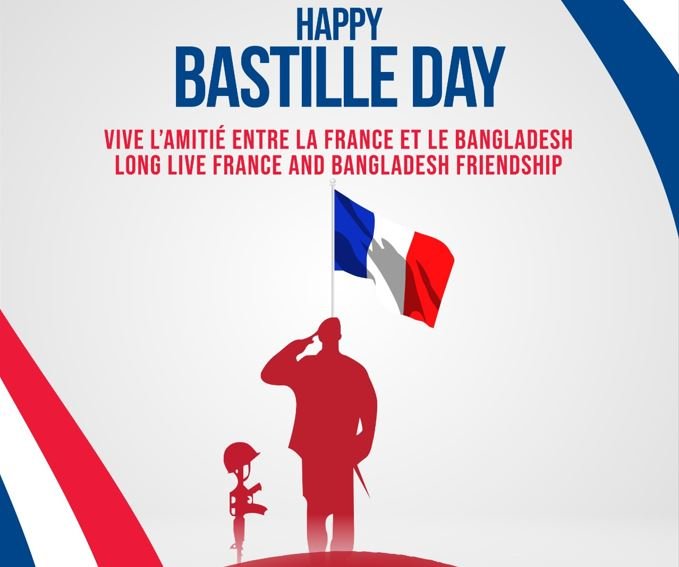Message from Chargé d’affaires, Embassy of France in Dhaka
“France celebrates its National Day in commemoration of the storming of the Bastille in Paris on the 14th of July 1789. It remains the powerful symbol of the French revolutionary fight for emancipation from a then absolute monarchy, followed a few weeks later by the landmark proclamation of the “Declaration of the Rights of Man and of the Citizen”, opening the long and arduous way to the establishment of democracy and the rule of law.
Since the beginning of our shared history, France has been a committed partner in its relationship with Bangladesh. Our country has heard the voice of Sheikh Mujibur Rahman: in 1971, André Malraux relayed his call to support the freedom and independence fighters. Two years later, he was received with great honors in Dhaka by the President Sheikh Mujibur Rahman. A recent publication in France, “Malraux and Bangladesh” retraces in details this founding moment and the symbol of our friendship and this beautiful book is currently being translated into Bangla.
The official visit of Honorable Prime Minister to France from November 9th to November 13th of 2021 has reflected the strong bond and the friendship between our two countries.
As underlined by the joint statement adopted on November 9th, France and Bangladesh share many views, in particular the vision of a free and open Indo-Pacific region respectful of international law. In this regard France was delighted to see Bangladesh take part in the Indo-Pacific ministerial Forum in Paris on February 22nd this year. France and Bangladesh once again reaffirmed their determination to strengthen partnerships in the field of blue economy, defense and science in particular.
While Bangladesh is still facing the challenges of climate change, France commends the leading role of Bangladesh in the Climate Vulnerable Forum. France remains at the disposal of Bangladesh in this area as well as in the field of infrastructures, particularly transportation, access to clean water, energy and telecommunications.
This year a is great and special year as France and Bangladesh celebrated on 14th February 2022 the 50th anniversary of the establishment of diplomatic relationships between both countries.
2022 is a milestone in many ways for Franco-Bangladeshi cooperation as we are also celebrating the 30 years archeological cooperation and exploration of the large site of Mahasthangarh, north of Bogra. This archaeological cooperation is the longest standing cooperation between our two countries. With excavations being carried out jointly by French and Bangladeshi archaeologist this endeavours stands as a perfect symbol of our two country cooperating by sharing knowledge and resources to work together towards a common goal.
In the context of the Covid-19 pandemic, France did display vaccine solidarity, in particular within the framework of the Covax facility with the support of the vaccination program of the French Development Agency.
The French Development Agency, who opened its Dhaka office in 2012 has since become a key player in development cooperation in Bangladesh with projects in many different areas such as energy, water, transportation, health and finance. On May 12th 2022, a Host Country Agreement between the Government of France and the Government of Bangladesh has been signed to legally seal the establishment of the AFD as a Development Partner of Bangladesh. On this occasion AFD renewed its commitment in supporting green and inclusive growth in Bangladesh.
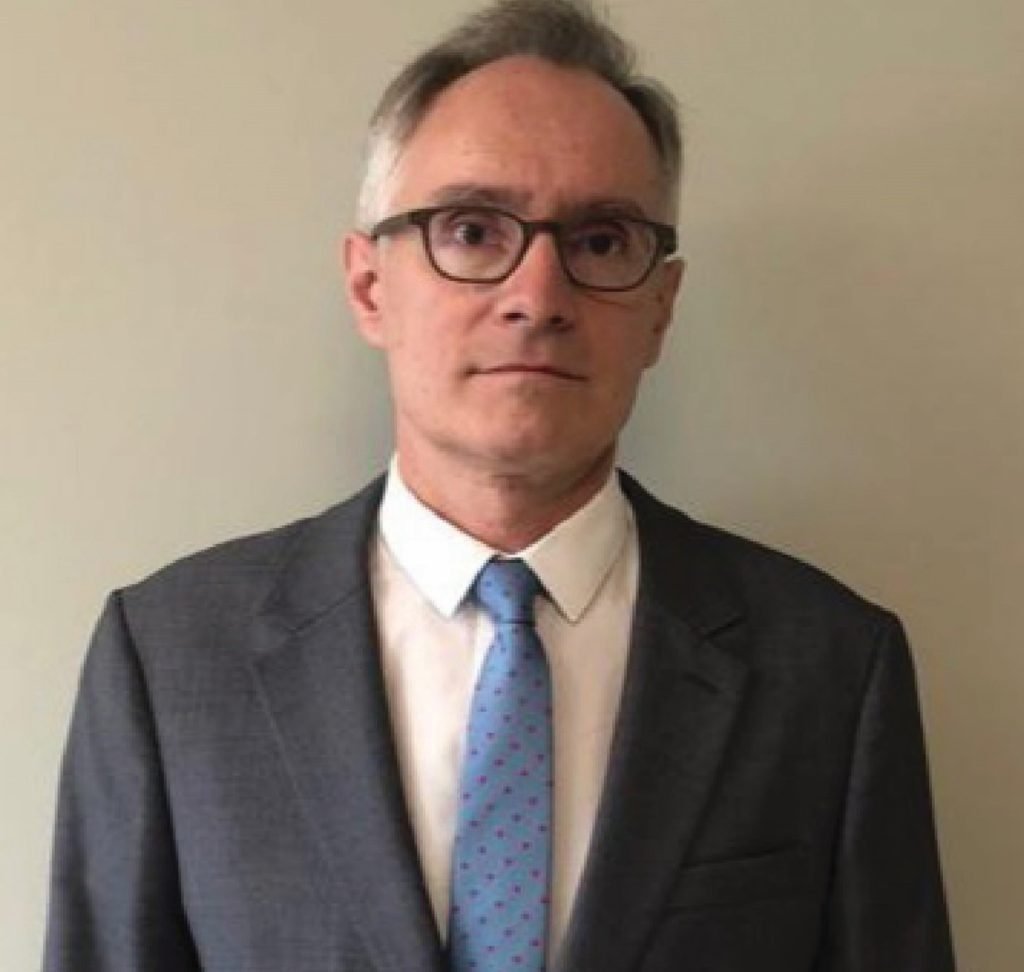
Chargé d’affaires
We now have to keep working together to combine our strength in order to consolidate mutual economic and social benefits and to face the numerous challenges to come.
Let me assure you that the French Embassy will continue to play an active role to further strengthen the friendly relations between our two countries.
Vive l’amitié entre la France et le Bangladesh
Long live France and Bangladesh Friendship
Joy Bangla”
Guillaume AUDREN de KERDREL
Chargé d’affaires
AFD – Agence Française de Développement
A Platform For The Development Financing
The Agence Française de Développement (AFD) is a Financial Development Institution owned by the French Government and operating since 1942. AFD funds, supports and accelerates the transitions to a fairer and more sustainable world. Focusing on climate, biodiversity, peace, education, urban development, health and governance, we carry out more than 4,000 projects in France’s overseas departments and territories and another 108 countries. In this way, AFD contributes to the commitment of France and French people to support the sustainable development goals.

Here are key figures of the AFD around the world:
In 2021, the total commitment of the AFD worldwide is €11.8 billion, similar as last year. Still impacted by the COVID-19 pandemic, AFD has been able to stabilize its support to developing countries, and to provide a multi-pronged response to the health, economic and climatic emergencies. AFD is translating into action the French Government’s commitment to support priority countries for France’s Official Development Assistance.
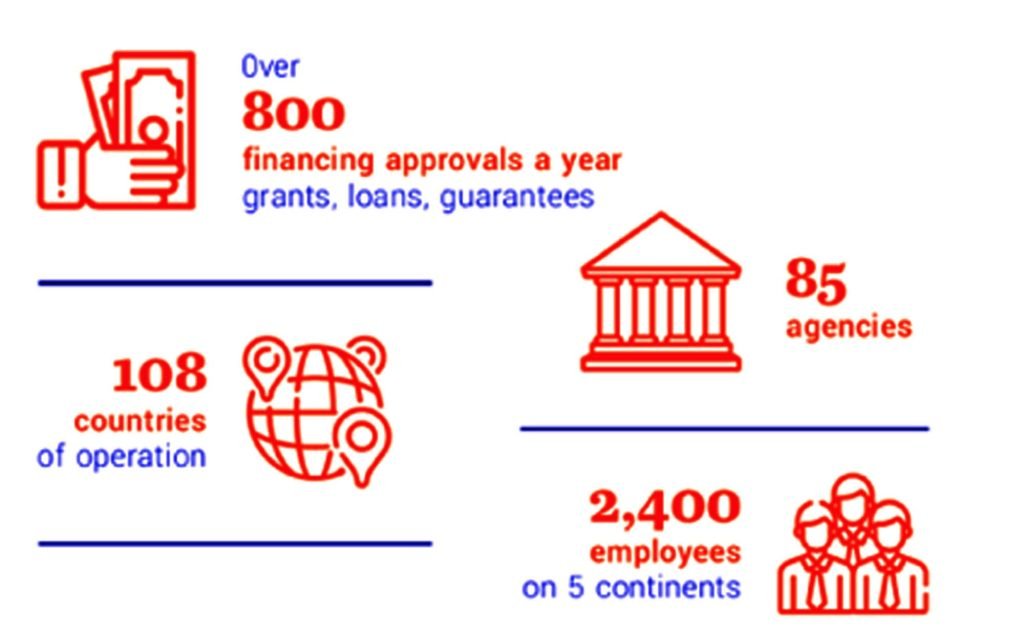
AFD’s commitment to Bangladesh
Since 2012, AFD and Bangladesh have been working together to develop low-carbon infrastructures and to promote access to essential services for the people. One goal: to support green and inclusive growth in Bangladesh.
Since 2012, the total commitment of AFD to Bangladesh is €1,142 million (€1,112 million as loan & €30 million as grant) financing 22 projects. AFD provides loans and grants together with technical assistance, expertise and policy support.
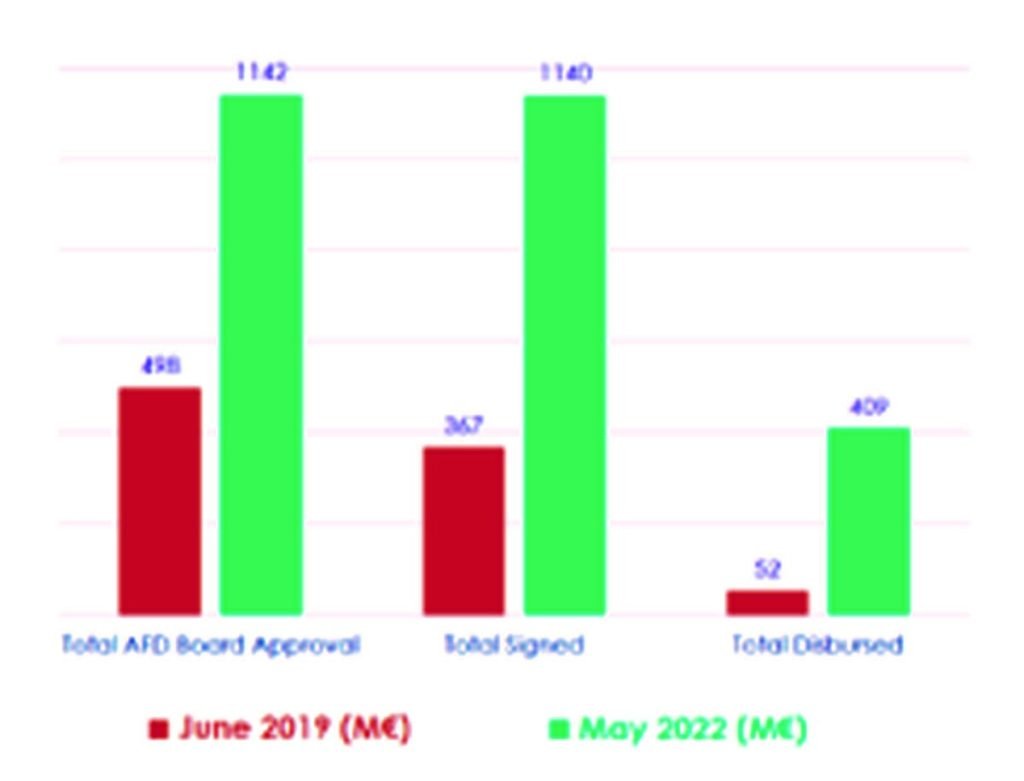
With a mandate matching the Bangladeshi government’s priorities, AFD’s interventions are based on the following areas of cooperation:
Our main implementing partners are Dhaka Power Distribution Company (DPDC), Infrastructure Development Company Limited (IDCOL), Bangladesh Infrastructure Finance Fund Limited (BIFFL), Dhaka WASA, Chattogram WASA, Department of Social Services, Roads, Highways Department, and the Bangladesh Bank. The AFD is concretely acting hand in hand with the Government of Bangladesh to develop low-carbon infrastructures and to promote access to essential services for the people in order to achieve the Bangladesh’s aspiration of becoming a middle-income country by 2031.
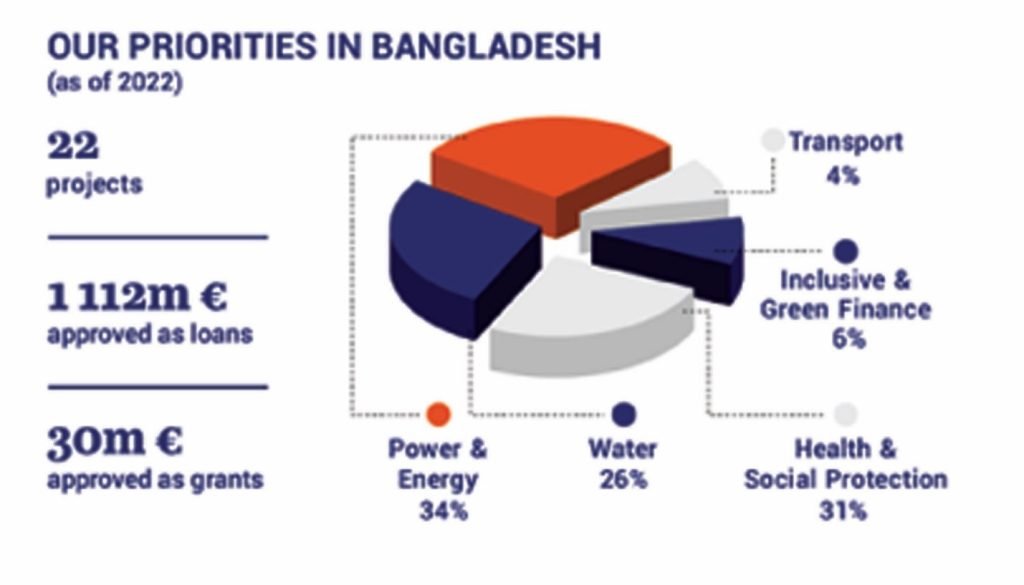
Fiscal year 2020-2021 has seen a boom in AFD’s activities in Bangladesh. Thanks to an excellent cooperation with ERD representing the Government of Bangladesh, a total of €331 million of grants and soft loans was approved during the fiscal year and more than €750 million of assistance is scheduled to be signed in the next two fiscal years. 2020-2021 has been an opportunity to amplify existing commitments in energy, social protection, as well as in water and sanitation, notably through a crucial additional funding for Gandharbpur treatment plant.
To meet the immediate economic and social crises arising out of COVID pandemic, AFD has mobilized a budget support financing of €200 million concessional loan to strengthen the health and social protection national system. Early 2022, AFD disbursed a first installment of €72 million. Besides, AFD is preparing the financing of projects in green finance, renewable energy, urban development, blue economy in the coming two years.
Finally, a Host Country Agreement between the Government of France and the Government of Bangladesh has been signed on May, 12th 2022, a few days before the Annual Consultation Meeting between the ERD and AFD in Paris. The Agreement legally seals the establishment of the AFD as a Development Partner of Bangladesh. AFD is now ready to strengthen its support Bangladesh development. As such, the AFD Dhaka office counts already 12 permanent staffs (+3 from 2019).
Franco-Bangladeshi Economic Relationships
Economic relations between Bangladesh and France have shown a strong reprisal in 2021 after a decrease of 15% in value of our bilateral trade in 2020 caused by the pandemia of Covid-19.
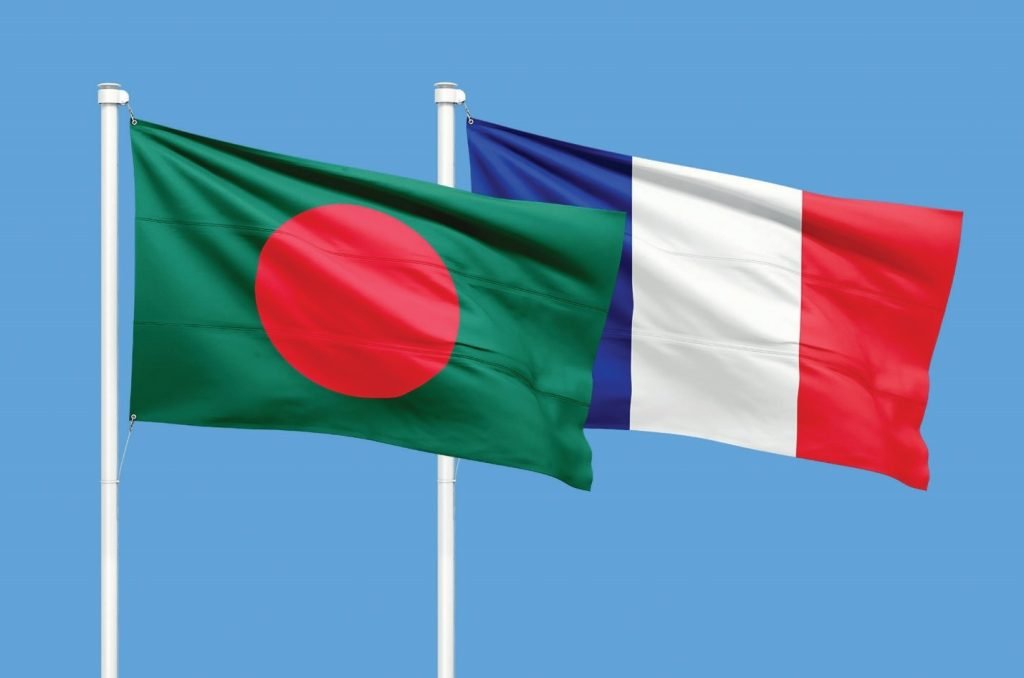
Last year, our bilateral trade has reached EUR 3.26 billion, showing an increase of 18% compared to 2020.
Fueled mainly by the RMG sector and some leather products, which represent 98% of French imports from Bangladesh, the total value of imports increased by 21% in a year to reach a record EUR 3.01 billion in 2021. France remains one of Bangladesh’s largest export markets, and its third customer in the European Union, all products considered.
Unfortunately, French exports to Bangladesh decreased again, by 20% compared to 2020, amounting to EUR 191 million, back to the level reached in 2017. French exports are boosted by electrical machinery and industrial equipment, such as gas turbines & equipment manufactured by GENERAL ELECTRIC in Belfort, France and Active Pharmaceutical Ingredients for pharma industry from SERVIER.
Consequently, our bilateral deficit which registered a threefold increase in the last ten years, came up to EUR 2.88 billion last year. To reduce the huge trade deficit we are facing, France is eager to put its world acclaimed know-how and experience at the service of Bangladesh and its people, especially in the sectors where our companies’ excellence is proven worldwide. Hence, we follow with a keen interest developments in such sectors as power generation (including renewable energy), rail transportation, water treatment and all environment related issues.
Few events have marked Year 2021, due to Covid-19, which forced the unfortunate cancellation in April 2020 of a visit by MEDEF INTERNATIONAL, the French equivalent to FBCCI.
The individual strength of both France and Bangladesh are to be amply utilized and shared in order to consolidate the mutual economic and social benefits. France and its companies are committed to developing their action and establishing partnerships which would allow Bangladesh to reach its ambitious economic targets.
Alliances françaises in Dhaka and Chittagong
Promoting French language, culture and studies in France
The Alliances Française in Dhaka in Chittagong have been a key player of Franco Bangladeshi cooperation for many years.
Founded in 1959, they are independent non-profit entities aiming to strengthen cultural cooperation and increase mutual understanding between France and Bangladesh. They offer French language courses as well as cultural events. Alliances are a hub for cultural and linguistic activities and a little piece of France in the heart of Bangladesh.
After two years heavily affected by the pandemic both Alliances are fully functional again, they now offer French classes online and in person and cultural events are happening regularly.
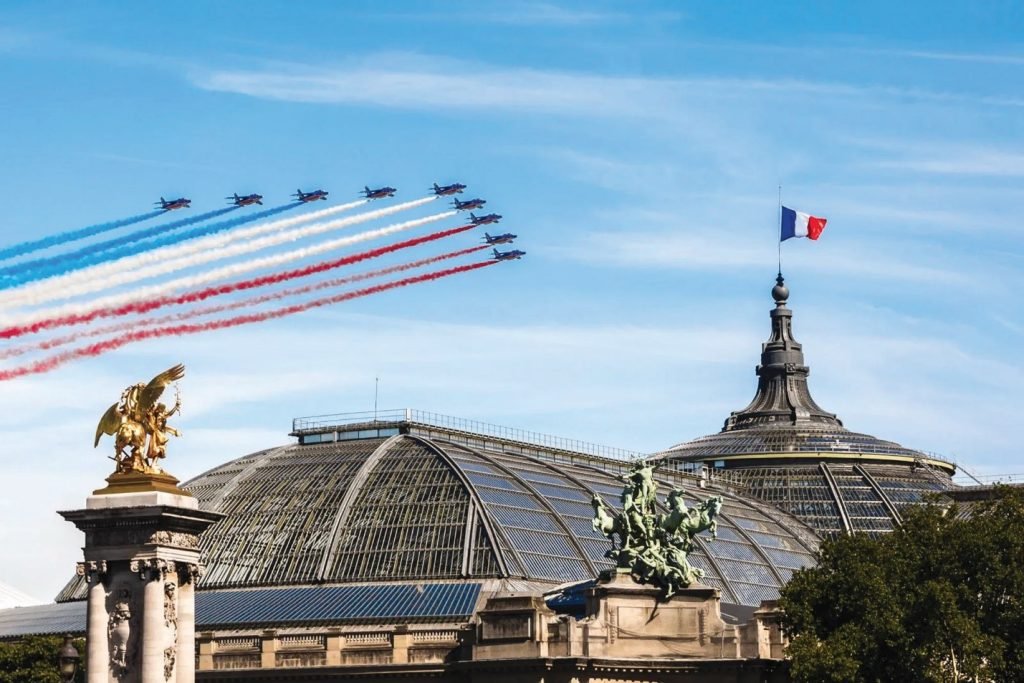
The Alliance Française has had strong and long-lasting partnerships with cultural institutions in Bangladesh such as the Liberation War Museum and Shilpakala academy. They feature renowned and emerging artists in many different fields such as theater, music, cinema and literature. Since last year many French artists and intellectuals have come to Bangladesh to perform and collaborate with local artists.
Alliance Française students praise the quality of the classes and the lively atmosphere as well as the diversity cultural programs.
A new Campus France office has opened in The Alliance Française in Dhanmondi to offer guidance and counselling sessions to students wishing to pursue higher studies in France. The Alliances have well established partnerships with many universities in France such as Political sciences institute in Saint Germain en Laye, near Paris, Montpellier Business School and Paris Institute for International and strategic relations.
30 years of Franco-Bangla Archeological cooperation
Thirty years ago, in 1992, Bangladesh and France signed a cultural cooperation agreement, which was renewed in 2000. Still active, this agreement marks the longest cooperation between our two countries. Its main objective is to continue the archaeological exploration of the large site of Mahasthangarh, north of Bogra. The excavations are being carried out jointly by the Department of Archaeology of the Ministry of Culture, and more specifically the Regional Directorate of Rajshahi division, led by Smt. Naheed Sultana, and a French team. From 1992 to 2012, the latter was led by Prof. Jean-François Salles, from the Maison de l’Orient méditerranéen in Lyon, and then, since 2013, by Dr. Vincent Lefèvre, who is Director of Collections at the National Museum for Asian Arts – Guimet in Paris and is assisted by Dr. Coline Lefrancq.
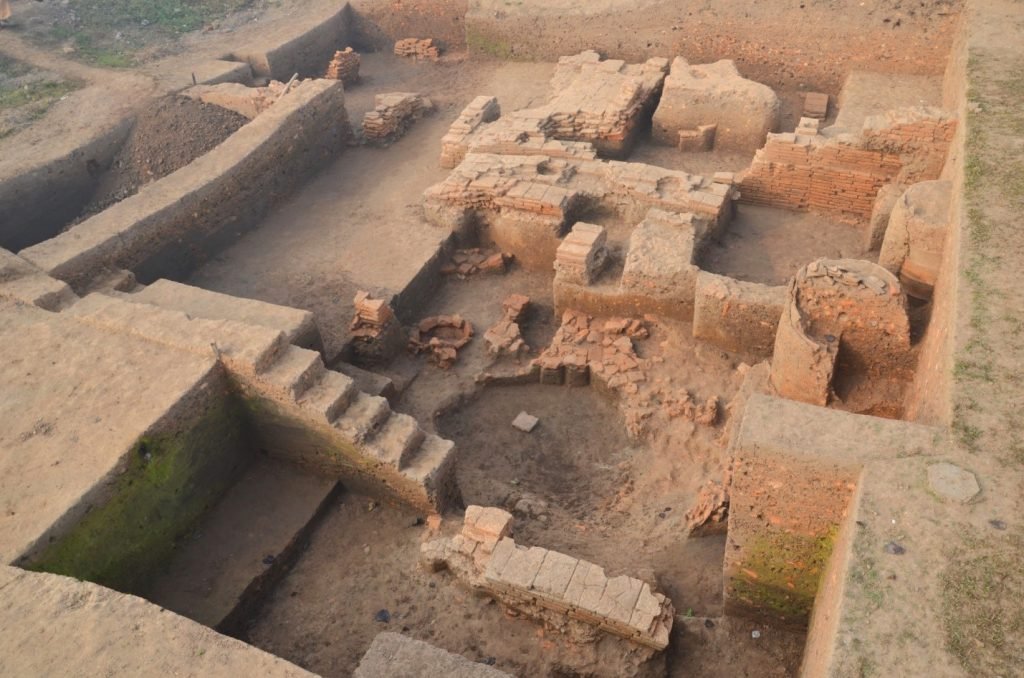
The site of Mahasthangarh has been known since the 19th century and has been the subject of numerous excavation campaigns. But the cooperation established over the last thirty years has the great advantage of marking a real continuity in research. First of all, it has endeavoured to provide a chronological framework for the city, thanks to several years of stratigraphic exploration (along with radiocarbon dating) of key sectors of the city: the eastern rampart, from 1993 to 2000, and the Mazar sector, to the southeast of the citadel, from 2001 to 2011. This made it possible to phase in a very long occupation sequence that stretches from the 4th century BCE to at least the 14th century CE and to show that, although the rampart has been rebuilt many times, its overall layout is original and dates back to the foundation of the city. The excavations also made it possible to document periods for which written sources are rare or non-existent. For example, traces of an important siege were discovered, which can be placed towards the end of the 7th century, or of an earthquake which seems to have affected the city in the 13th century.
Since 2012, while the general chronology is better known, joint research has focused more on the urban organisation of the site. The excavations have thus focused on a sector located to the south-east of the Bairagir Bhita temples, on the axis that runs from the north-eastern gate to the Mazar sector in the eastern part of the citadel, i.e. on the side of the Karatoya River, which environmental studies carried out in conjunction with the excavations have shown to have once been a very large river, probably as important as the present Padma and Jamuna.
Unlike the French team, which is usually able to carry out only one mission per year, the Bangladeshi archaeologists are naturally on site and thus have the opportunity, outside the joint programme, to excavate other parts of the city—notably the Bairagir Bhita temples—and other sites in the vicinity, such as the Buddhist monasteries of Bihar and Vasu Bihar.
However, the excavations—and the publications that result from them—do not constitute the totality of the French-Bangladeshi cooperation, since it also includes a very important training component. This takes the form of hosting young Bangladeshi professionals during excavations, but also of regular internships in France, or even practical seminars organised on site, for example on the conservation and management of excavated material.
Of course, the Covid-19 pandemic put a stop to this fruitful cooperation for a while. But at the beginning of 2022, the French team was finally able to return to the site and a new excavation campaign is planned for the end of the year. It is now a question of exploring the western part of the site, where there are no visible archaeological remains. This will lead to a new methodology, giving less importance to extensive excavations and more to soundings and the use of remote sensing tools and, if possible, the use of a drone.

